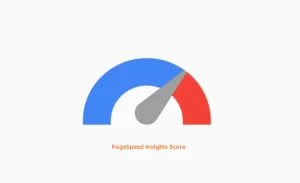To make a business cake of any sort rise to greatness in today’s digital era, having a good online presence is a vital ingredient. Here comes Search Engine Optimization or SEO. SEO, in simple terms, is the practice of structuring your website’s technical information so that it will be nearer to the top of search engine result pages (SERP). Properly carried out, it can bring large amounts of traffic to your site and increase your brand visibility.
For small business owners or marketing professionals learning the basics of Google SEO is well within their reach.
This complete guide will tell you what Google SEO is, and why it matters; how the rankings process works for keywords in Google’s search results; and some methodology tips that have been proven to work so far. By the time you finish reading this article, you’ll be all set to improve your website’s SEO from the ground up and watch traffic start pouring in.

What is Google SEO?
Google SEO, or Search Engine Optimization, defines the process of improving your website to rank higher on Google’s SERPs. But unlike other engines where users choose whatever page appears first in their query reply, Google doesn’t follow such a simple principle. Whether your page will appear in the SERPs and what kind of visible results it could yield depends on a complicated formula Google has put together. If you base your website on these algorithms, the traffic will increase and visitors will come rolling in.
Benefits of Google SEO
Developing an SEO plan for your website provides a wide range of positive effects:
- Higher Visibility and Traffic: As the ranks in search results go up, so does visibility–with more people finding out about your company by visiting from their homes online, there is increased traffic to your website.
- Trustworthiness: Websites that occupy top spots on Google searches are often seen as most dependable and trustworthy by Internet users.
- Cost-Effective Marketing: The traffic generated by SEO is free as opposed to traffic from sponsored search, which will save you money in the long run even if it’s somewhat more difficult to get started.
- Improved User Experience: SEO techniques often include website usability improvements, higher average times spent on sites, and better conversion rates.
- Competitive: Enabled more searches than ever before to appear on your company and leisurely enjoy increased convenience to all surrounding environments.
Key Elements Affecting Google Keyword Rankings
Many factors can influence how Google evaluates the ranking of your website with specific keywords. Understanding these factors is of ultimate importance if you are to develop a successful SEO strategy:
- Quality Contents: Content that is high in quality, pertinent, and informative is a key factor in Google’s ranking. Google endeavors to give its users the best possible answers.
- Backlinks: Links from other reputable sites to yours are sending a signal to Google that the content of your website is authoritative and trustworthy.
- On-Site Yelping: You can switch out title tags, meta descriptions, headers text, and keywords into your content just as easily on your pages as it goes on.
- Mobile Friendliness: With the growing number of smartphone users who are also using Google to look up information, this comes as no surprise.
- Page Speed: Faster load times provide a better browsing experience and are preferred by Google when deciding whether or not to show the user a certain page.
- User Engagement: Metrics such as click-through rates, bounce rates and time spent on your site can affect how Google ranks the page.
10 Best Google SEO Strategies

Conduct Thorough Keyword Research
It is by keyword research that you will succeed in SEO. Next, from the search terms your target audience wants to know about/key questions they are asking: Second, using tools like Google Keyword Planner, Ahrefs, and SEMrush to find terms related with those holders already spoken of in high volume but not much competition
Best Practices:
- Focus on long-tail keywords: They are often more specific and therefore less competitive, making ranking easier.
- Analyze competitor keywords: Know what keywords your competitors rank for and consider including them in your strategy.
- Regularly update your keyword list: Remember that things change and trends come and go, so from time to time keeping up with this pace is essential for keeping up-to-date trends, and refreshing old ones will help you attain effective use again.
Improve Your Content
Valuable, engaging, and well-optimized content can give a big boost to your site rankings. Make sure that your content is informative, and based on research-presented facts for the needs of your audience.
- Best Practices Chapter: Writing targeted keywords naturally—Incorporate your keywords in your content but don’t stoop to “keyword stuffing.”
- Create exhaustive content: Longer, more thorough articles typically rank higher for searches.
- Refresh old content: This can modernize the relevance (accepted ideas on the web change) and search performance of your existing pages.
Improve Your Website’s Speed
Website speed is one of those things that you either get right — or it works against you. Quick-loading sites tend to have lower bounce rates and greater search engine page ratings (SERP). Use the tools Google PageSpeed Insights and GTmetrix to evaluate your site’s speed. Then you can identify which areas need improving.
Best Practices:
- Optimize images: Shrink down file sizes of pictures to enable quicker loads by compressing them without any loss in quality.
- Enable browser caching: This allows frequented resources to be saved locally, reducing page load times and speeding everything up.
Ensure Mobile-Friendliness
As the use of smart devices has skyrocketed, there may be nothing more important than a mobile-friendly website. Google is a mobile-first indexing engine. That means its main source of information for ranking and indexing comes from the mobile version of a site.
Tips for Optimization:
- Choose a responsive layout: Arrange your webpage so that when people look at it on different sorts of screens, it still looks neat and clear.
- Test to see whether it is compatible with mobile phones: There devices on the market, such as Google’s Mobile-Friendly Test tools, provide a quick check of your site’s performance on mobile phones or tablets.
Optimizing On-Page Elements
With on-page SEO, it’s about making individual pages rank higher and also improving the relevance of traffic that comes to them. On-site elements include title tags, meta descriptions, and headers as well as URL construction.
Some Good Advice:
- Title Tags: Keep them short (under 60 characters) and use targeted keywords.
- Meta Descriptions: Write meta descriptions so strong they generate clicks, that approach 150-160 characters.
- Headers: Your titles use H1 tags and subheadings (for paragraphs) H2, etc., until the structure gets too deep.
- URL Structure: Descriptive keywords in the page’s web address can help search engines give you higher rankings. Keep URLs short.
Build Some High-Quality Backlinks
Backlinks are links from other websites to yours. They are an important source of trust in Google’s ranking algorithm. High-quality backlinks from reputable websites can boost how much enthusiasm or interest there is for you on Google search engine results pages (SERPs) and help improve SEO.
Best Practices
- Create shareable content: Produce valuable content that others would like to link.
- Guest blogging: Contribute articles to respected sites about your industry in exchange for backlinks.
- Influencers: Linking to your content is done by connecting with peers who might be able to help with this.
Use Structured Data Markup
Fortunately, with Schema Markup, you can improve your clickthrough rates (CTR) dramatically and even multiply traffic without actually increasing your search rankings. So it’s essential to have a firm grasp and automatically generate rich results and Enhanced listings in search results.
- Implement schema markup: Use JSON-LD format to add structured data to your site.
- Use Google’s Rich Results Test: With this tool, you can see what is displayed as a rich result for a URL and debug any issues that might be causing unexpected outcomes.
- Focus on rich snippets: Enhances your listings with additional information, such as ratings, reviews, and product details.
Optimize for Voice Search
Optimize content for Voice Search can help you grab this growing traffic.
Best Ways:
- Use verbal keywords: Speech searches tend to more mean conversation, so to be consistent with this contextual pattern on the kicker of a long pass.
- Answer questions: Content that solves problems or gives information your target audience is looking for.
- Optimize local search: Voice searches often have local intent. Therefore, include keywords designed to capture local intent.
Keep up with SEO Trends
SEO trends help keep your strategy alive, and they can keep you in front of the game at least temporarily.
Best practices:
- Take the time to read SEO blogs of quality: It is seldom that a high-end SEO site sets the scene for shoddy advice. The most reputable such sites would include Moz, Search Engine Land, or Neil Patel.
- Attend industry webinars/conferences: Take on board the knowledge of the seasoned pros at SEO seminars and major conferences.
- Join the SEO Community: Post to or belong to social media groups and forums online, where you can mix it up with other people in the same line of work as yourself.
5 Best Google SEO Tools and Software
Google Analytics
Google Analytics is an imperative weapon in the hands of an internet marketer or for owners of websites comfortable with digital marketing. It can give comprehensive insights into the traffic on your website, user behavior patterns, and general performance statistics.
Key Features
- Traffic Analysis: Display the number of visitors, page views, and session duration.
- Behavior Analysis: Track how users navigate your site. This data shows popular pages and drop-off points where visitors leave your site without going deeper into the content or onto another part of the site.
- Goal Tracking: Set goals, and measure specific objectives such as conversions, form submissions, and downloads.
Google Search Console
Google Search Console which can keep track of your website when it appears in a Google search, Icon view Whether or not it’s included in the index, and whether or not Google is accessing your pages. This is a useful insight into exactly how Google sees your website and how you can solve possible SEO faults.
Key Features:
- Performance Reports: This shows which queries bring traffic to your site, analyzes click-through rates, and you can even see the average position in search results.
- Index Coverage: Reviews what pages are indexed to any extent by Google and highlights any coverage issues.
- Mobile Usability: Verify that your site is mobile-friendly and can likewise find any mobile issues.
Ahrefs
Ahrefs is known for its comprehensive SEO toolkit and strong backlink analysis function. Through Ahrefs, it can assist you in understanding your website’s backlink profile; find top-quality link opportunities, and beat competitors.
- Site Explorer: Check out the backlink profile of your website, so you know which sites are linking to yours.
- Keywords Explorer: Search for keyword suggestions and see what their difficulty level and search volumes are like in them.
- Content explorer: For your content strategy, explore what has been the most successful content in your niche and draw on those types of ideas.
SEMrush
SEMrush offers a variety of tools to help digital marketers improve their website’s visibility and performance and is considered an all-in-one SEO tool. In fact, from keyword research to competitive analysis, SEMrush will provide the core components for beheading a website into one integral part with another goal of standing up taller than before in organic search results: promoting better online visibility through different types of information online at any given moment.
Main features include:
- Keyword Research: Discover promising keywords, and track how they perform.
- Site Audit: Carry out comprehensive audits to pinpoint and fix on-site SEO trouble spots.
- Position Tracking: Check your site’s rankings for target keywords and chart its progress over time.
Moz Pro
It is known for high quality that Moz Pro, as a maturing SEO tool, offers various features to assist with website optimization, following one ‘s own rankings analysis and sophistically comparative strategy. Its success lies in the user-friendly interface and powerful keyword research tool.
Key Features:
- Keyword Explorer: Unearth The best keywords and test their traffic, competition from other locations, and potential earnings.
- Rank Tracking: Monitor where your website appears in searches for particular keywords, and how it grows — or doesn’t at all.
- On-Page Optimization: Get actionable recommendations to improve your on-page SEO and boost search rankings.
FAQs
How Long Does It Take to See Results from SEO?
SEO has long cycles and significant results can take several months. Attitude to time of these factors can influence it, such as the industry’s competition ratio for example as well as things like quality content, and how well you do in your efforts.
How Often Should I Update My Website’s Content For Seo?
Keeping your content fresh Search engines reward new Fresh and updated information. Try updating your blog posts — These are perhaps the most visible single item, worth doing at least once a month then take a tour through your other materials with an eye towards freshening obsolete facts as necessitated.
Can I do SEO on my own or should I get someone to do it for me?
However, while you can certainly understand and practice SEO all by yourself, hiring a specialist can not only save a lot of time but also guarantee that you get good results. An expert in SEO can bring you valuable insights or conduct detailed work on keywords; they can even use advanced methods that can be applied separately to your site rankings to improve specifically on certain levels or areas.
Final Thoughts
Google SEO Mastering takes time, energy, and a constant learning process. You need to understand basic principles cultivate good habits and choose suitable tools. In this way, your website visibility is raised together with more organic traffic coming in. One thing to note is that SEO is not something you can finish, but an always-going process. Follow the newest trends, check performance, and then adapt when necessary to keep ahead of your opponents. No matter whether you’re a small business owner or an online marketer, following these tips and strategies will hugely affect your website traffic volumes–and ultimately income levels. Such a practice that works is indeed a quick wealth-making measure. Are you ready to go above and beyond in Google SEO?
Posts you may be interested in:


